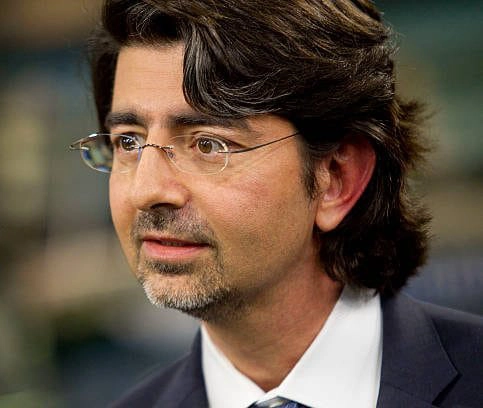
Influential Iranian Figures: Comprehensive Biographies & Achievements
Iran’s rich history and vibrant culture are shaped by the contributions of countless influential figures across various fields. From groundbreaking scientists and celebrated poets to visionary political leaders and innovative artists, these individuals have left an indelible mark on both Iranian society and the world at large. This comprehensive exploration delves into the lives and achievements of these remarkable figures, highlighting their enduring legacies and the ways they have inspired generations. By examining their biographies and monumental accomplishments, we gain deeper insight into Iran’s cultural, intellectual, and historical significance
Anousheh Ansari (Born 1966)
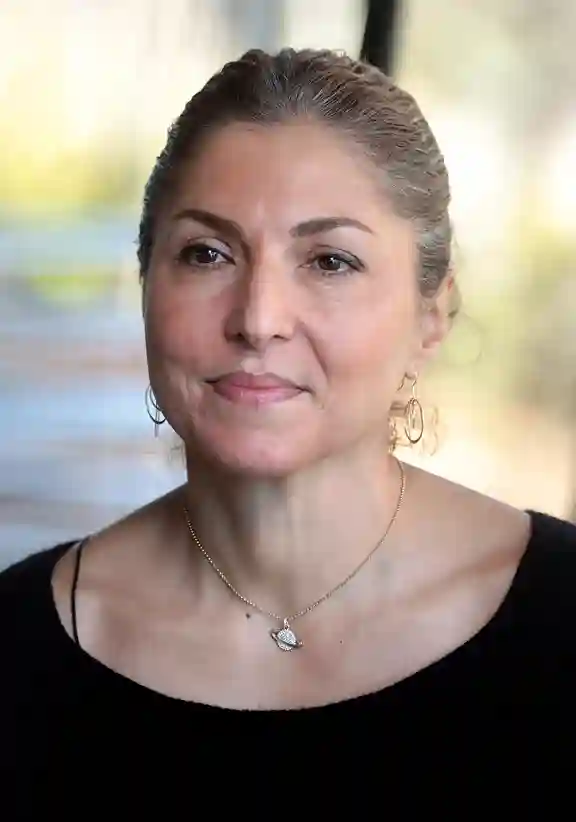
Biography:
Anousheh Ansari was born on September 12, 1966, in Mashhad, Iran. She demonstrated exceptional academic aptitude early in life, later earning a Bachelor of Science in electrical engineering and computer science from George Mason University and a Master’s degree from George Washington University. In 1984, Ansari moved to the United States, where she worked at MCI and met her husband, Hamid Ansari. Together, they established Telecom Technologies Inc. in 1993, which made innovative contributions to the telecommunications industry until its acquisition by Sonus Networks in 2001.
Space Achievement:
On September 18, 2006, Ansari made history by becoming the first Iranian and the first self-funded woman to travel to the International Space Station aboard the Soyuz TMA-9 spacecraft. This groundbreaking journey exemplified her personal aspirations and inspired countless individuals worldwide, particularly young women and aspiring engineers.
Professional Career:
Currently, Ansari serves as the Chief Executive Officer of the XPRIZE Foundation, an organization dedicated to encouraging technological advancements and innovation through competitions and financial awards. Her family is known for sponsoring the Ansari X Prize, which incentivized private space travel. Through the XPRIZE, she demonstrates her commitment to pushing the boundaries of science and technology, empowering individuals to achieve extraordinary feats.
Awards and Recognition:
Ansari has received numerous honors throughout her career, including being selected as a Young Global Leader by the World Economic Forum in 2008 and winning the Working Woman award. Her contributions to technology, business, and space exploration underscore her remarkable achievements and enduring impact on society.
Maryam Mirzakhani (1977-2017)

Biography:
Maryam Mirzakhani was born on May 12, 1977, in Tehran, Iran. Her childhood was shaped by the adversities of wartime Iran, during which she developed a strong imagination and deep interest in science and mathematics. Initially struggling in mathematics, the encouragement of a supportive teacher helped her discover her exceptional capabilities in the subject. She attended Farzanegan schools, known for nurturing talented students.
Education:
Mirzakhani’s talent became evident during her participation in the Iranian Mathematical Olympiad, where she earned gold medals in both 1994 and 1995. She studied mathematics at Sharif University of Technology, graduating in 1999. She then moved to the United States for graduate studies at Harvard University, working under the guidance of renowned mathematician Curtis McMullen, a Fields Medalist.
Professional Achievements:
After completing her PhD in 2004 with a dissertation titled “Simple Geodesics on Hyperbolic Surfaces and Volume of the Moduli Space of Curves,” Mirzakhani held positions at Princeton University before joining Stanford University as a professor in 2009. Her research focused on Teichmüller theory, hyperbolic geometry, ergodic theory, and symplectic geometry.
Historic Achievement:
In 2014, Mirzakhani made history by becoming the first woman and the first Iranian to receive the Fields Medal, often referred to as the Nobel Prize of Mathematics. The Fields Medal committee recognized her groundbreaking research on the dynamics and geometry of Riemann surfaces and their moduli spaces.
Legacy:
Mirzakhani passed away from breast cancer on July 14, 2017, at the age of 40. Her legacy continues through initiatives like the Maryam Mirzakhani New Frontiers Prize and the 12 May Initiative, established to promote women’s participation in mathematics. Her achievements and pioneering role serve as an inspiration to aspiring mathematicians worldwide.
Shervin Pishevar (Born 1974)
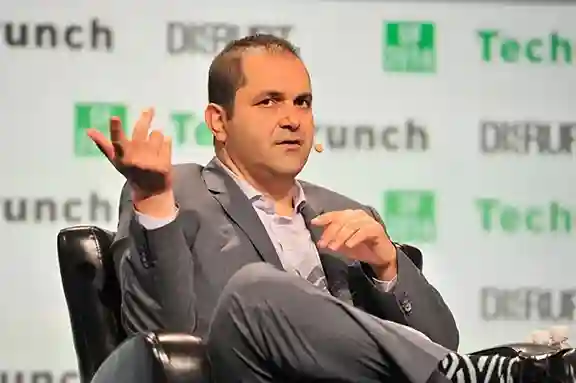
Biography:
Shervin Kordary Pishevar was born on March 24, 1974, in Tehran, Iran. He later moved to the United States with his family, navigating the challenges of immigrant life. He attended the University of California, Berkeley, initially pursuing a medical career before switching to entrepreneurship. At just 23 years old, Pishevar founded WebOS, a pioneering web-based operating system, positioning him as a trailblazer in the tech landscape.
Professional Career:
Throughout his career, Pishevar has been instrumental in the success of numerous startups. He co-founded Hyperloop One and served as its executive chairman while also being a managing director at Sherpa Capital, which backed high-profile companies like Airbnb, Uber, and Slack. His acumen in identifying and nurturing innovative ventures has solidified his reputation in the venture capital community.
Investments:
As an angel investor, Pishevar has seeded over 60 companies, demonstrating his commitment to fostering entrepreneurship. His career journey began as an engineer working on cutting-edge projects, but his true calling lay in venture capital, where he excelled in identifying and supporting promising startups.
Awards and Recognition:
Pishevar was appointed by President Barack Obama to the J. William Fulbright Foreign Scholarship Board and recognized as an Outstanding American by Choice in 2012. He served on the United Nations Foundation’s Global Entrepreneurs Council and in 2016 was awarded the Ellis Island Medal of Honor for his contributions as an American citizen of Iranian descent.
Philanthropy:
Beyond his success as an investor, Pishevar is deeply committed to philanthropy and making a positive social impact. He actively supports various causes, including education, healthcare, and environmental sustainability, believing that technology can address some of the world’s major challenges.
Pierre Omidyar (Born 1967)
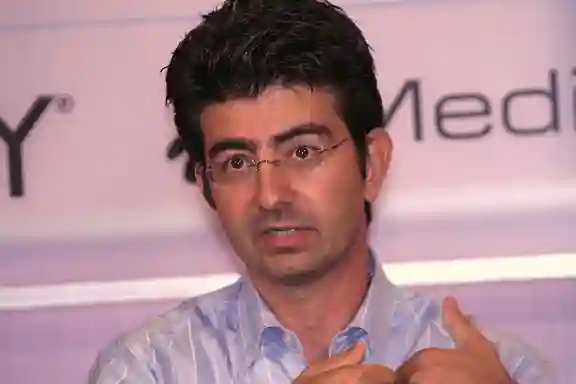
Biography:
Pierre Omidyar was born on June 21, 1967, in Paris, France. He moved to the United States at the age of six and was raised in a bilingual environment. From an early age, Omidyar demonstrated a fascination with technology and gadgets. He wrote his first computer program at 14 and later graduated from Tufts University in 1988 with a degree in computer science.
Professional Achievement – eBay:
In the summer of 1995, Omidyar launched eBay (originally named Auction Web) from his personal website to facilitate online auctions between users. The platform quickly gained traction; within nine months, it had expanded enough that Omidyar left his job to focus on it full-time. By the end of 1998, eBay had attracted 2.1 million members and generated $750 million in revenues.
The success of eBay stemmed from Omidyar’s belief in the inherent goodness of people, which guided the development of the platform as a self-policing community. He implemented innovative features like the feedback forum (now imitated by many platforms), allowing users to rate each other and provide transaction feedback, fostering trust among users.
Other Ventures:
Before eBay, Omidyar worked on various software ventures, including one that eventually became eShop, acquired by Microsoft in 1996. In January 2000, he took his first board position outside eBay with ePeople, marking the beginning of his involvement in other ventures.
Philanthropy:
Omidyar has made significant philanthropic contributions through the Omidyar Network, which focuses on social impact initiatives. He also launched First Look Media in collaboration with Glenn Greenwald, aiming to promote independent press essential for democratic societies.
Pejman Nozad

Biography:
Pejman Nozad was born in Iran during the Iranian Revolution, experiencing significant challenges in his early years. The harsh realities of war instilled in him a tenacity that would later fuel his rise in the tech industry. At the age of twenty, he immigrated to the United States with only $700, driven by the dream of building a better future.
Early Career:
Upon arriving in the U.S., Nozad took on various jobs, including washing cars and selling frozen yogurt. His breakthrough came when he started selling Persian rugs in Menlo Park, located in the heart of Silicon Valley. Through this business, he built invaluable relationships with tech entrepreneurs, nurturing a network that would propel him into the venture capital world. He was wildly successful, selling over $8 million worth of Persian rugs during his short career.
Entrepreneurial Success:
In 2013, Nozad co-founded Pear VC alongside Mar Hershenson. The firm focuses on seed-stage investments and has built a portfolio valued at approximately $50 billion. Their partnership combines different backgrounds and experiences, which has been crucial to their success. Pear VC quickly became one of the top five seed-stage venture capital firms, known for its unique approach to nurturing startup talent.
Investment Philosophy:
Nozad’s investment philosophy centers on identifying exceptional entrepreneurs who demonstrate a deep understanding of their challenges, a readiness to learn from failure, and the charisma to inspire others. Under his and Hershenson’s guidance, their firm has supported the growth of over 200 successful tech ventures, including high-profile companies like DoorDash and Dropbox.
Philanthropy:
Beyond his contributions to venture capital, Nozad established the Pejman Foundation to support educational initiatives and promote social innovation, reflecting his commitment to helping aspiring entrepreneurs achieve their dreams.
Arash Ferdowsi (Born 1985)

Biography:
Arash Ferdowsi was born on October 7, 1985, in Overland Park, Kansas. He graduated as valedictorian from Blue Valley Northwest High School in 2004 and later attended the Massachusetts Institute of Technology (MIT) to study electrical engineering and computer science. However, he made the bold decision to drop out during his final year to focus on developing his startup.
Dropbox Creation:
In June 2007, Ferdowsi, along with his business partner Drew Houston, founded Dropbox at MIT. They recognized the growing need for simple, accessible file storage and sharing solutions. Shortly after establishing their company, they relocated to San Francisco and successfully secured funding from renowned venture capital firms, including Sequoia Capital, Accel, and Y Combinator.
Professional Achievements:
Under Ferdowsi and Houston’s leadership, Dropbox quickly gained popularity, providing users with a seamless way to store and share files online. The company reached a significant milestone with its initial public offering (IPO) in March 2018, which valued it at approximately $9.2 billion. Dropbox has more than 500 million users worldwide.
Career Timeline:
From Dropbox’s launch until October 2016, Ferdowsi served as the Chief Technology Officer (CTO), playing a pivotal role in shaping the company’s technology and product development. After stepping down from his CTO position, he continued to influence the tech ecosystem until he left the company in December 2020.
Recognition:
Throughout his career, Ferdowsi has received numerous accolades for his contributions to technology and entrepreneurship, including being named to Inc. Magazine’s “30 Under 30” in 2011 and Fortune Magazine’s “40 Under 40” list the same year. He was also awarded the “Founder of the Year” Crunchie by TechCrunch.
Omid Kordestani (Born 1963)

Biography:
Omid Kordestani was born in 1963 in Tehran, Iran. He moved to the United States in the late 1970s, where he pursued his education, earning a Bachelor of Science in electrical engineering from San Jose State University and later an MBA from Stanford University.
Early Career:
Kordestani began his professional journey at Hewlett-Packard before joining Netscape Communications, where he significantly boosted the company’s website revenue in a short span of time. His expertise in business development and sales was crucial, allowing him to secure valuable partnerships with major corporations like AOL and Amazon.
Google Career:
In 1999, Kordestani made a pivotal move to Google, becoming the company’s 11th employee. He helped shape Google’s initial business model and played a vital role in its growth as Senior Vice President for Worldwide Sales and Field Operations until 2009. After a hiatus, he returned to Google in 2014 as Chief Business Officer. His strategic insights and leadership in global sales and business development were instrumental in the company’s early successes.
Twitter Role:
In 2015, Kordestani transitioned to Twitter, taking on the role of Executive Chairman. His leadership at Twitter continued until 2020, when he stepped down amid management changes.
Recognition and Philanthropy:
Throughout his career, Kordestani has received several accolades, including being named one of Time Magazine’s “100 People Who Shape Our World” in 2006 and being honored as the Persian Person of the Year by Persian Awards in 2007. Forbes included him in its prestigious list of wealthiest Americans in 2007, ranking him #204 with an estimated net worth of $2.2 billion.
Beyond his corporate endeavors, Kordestani is actively involved in philanthropy. He is one of the founders of the PARSA Community Foundation, which focuses on enhancing Persian heritage through entrepreneurship and social responsibility.
Sean Rad (Born 1986)
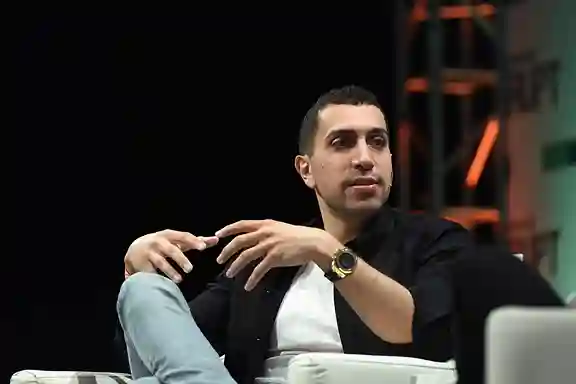
Biography:
Sean Rad was born in Los Angeles, California. His entrepreneurial journey began at a young age, showcasing his innate ability to solve modern problems through technology. After enrolling at the University of Southern California (USC) in 2004, he launched his first company, Orgoo, an integrated messaging and video communications platform.
Tinder Creation:
In 2012, Rad, along with co-founders Justin Mateen and Jonathan Badeen, innovated the dating landscape with Tinder. The app introduced the concept of a double opt-in mechanism (the “mutual opt-in” approach), ensuring that mutual interest is established before initiating conversations. This design was an instant hit – within two months of launching, Tinder had facilitated over a million matches. By 2015, it had become the highest-grossing app in Apple’s App Store.
Leadership at Tinder:
Rad’s leadership journey at Tinder began as CEO from its founding until March 2015, when he took on a new role before returning as CEO later that year. Under his leadership, Tinder processed over a billion swipes daily and maintained high engagement rates among users. However, in 2017, Rad split from Tinder after a dispute over the valuation of restricted stock units, leading to legal battles with the app’s parent company, IAC/Match Group.
Later Ventures:
Beyond Tinder, Rad co-founded AllVoices in 2018, a platform designed to empower employees to anonymously report workplace issues like harassment and compliance violations. His commitment to innovation and social issues is reflected in his role as a founding board member of Good Today, a nonprofit that encourages daily charitable giving.
Net Worth and Achievements:
As of recent reports, Sean Rad has a net worth of over $3 billion. His journey from creating a failed web mail service (Orgoo) to launching one of the most successful dating apps in history demonstrates his resilience and determination to learn from failure rather than be deterred by it.
Ali Vahabzadeh
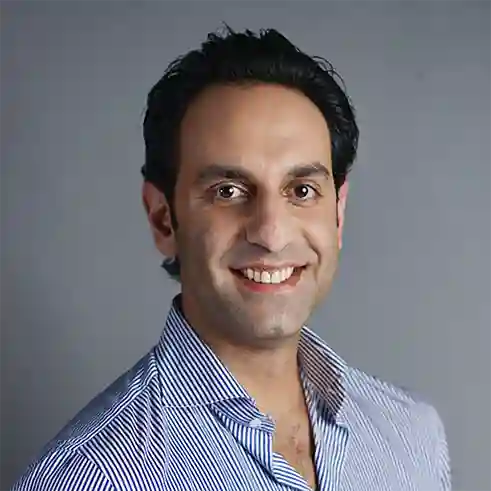
Biography:
Ali Vahabzadeh is a distinguished entrepreneur known for his innovative contributions to the transportation and technology sectors. He is currently the Founder and CEO of Safari AI, a company he established in 2018 that is recognized as the first to utilize computer vision technology for operational efficiency.
Safari AI:
Under Vahabzadeh’s leadership, Safari AI leverages advanced computer vision technology to assist enterprises in optimizing their operations through automated insights. Clients such as theme parks and retail businesses use their proprietary technology to gather critical data on various key performance indicators, ultimately transforming how physical activity is measured in business environments.
Chariot Success:
Before founding Safari AI, Vahabzadeh co-founded Chariot, a microtransit company that gained significant attention for its unique crowdsourced approach to commuting. Operating from 2014 to 2018, Chariot raised multiple rounds of venture capital funding, participated in the Y Combinator Winter 2014 batch, and was successfully sold to Ford Smart Mobility in 2016. Post-acquisition, he played a pivotal role in expanding Chariot’s operations across six cities, including New York and London.
Early Career:
Vahabzadeh’s professional journey began at Bank of America Merrill Lynch, where he served as Vice President in the Equity Derivatives sector from 1999 to 2007. This foundational experience in finance provided him with a robust understanding of business operations, which he later applied to his entrepreneurial ventures.
Education and Mentorship:
Vahabzadeh is an alumnus of Vanderbilt University and has also participated in Y Combinator. Beyond his primary roles, he is passionate about mentorship and fostering future entrepreneurs, actively participating in various startup ecosystems and sharing his knowledge to inspire the next generation of innovators.
Mohsen Emadi (Born 1976)

Biography:
Mohsen Emadi was born on October 29, 1976, in Sari, Iran. Raised in a culturally rich environment, he began writing poetry during his childhood. In 1995, he moved to Tehran to study computer engineering at Sharif University of Technology. During his university years, he co-founded multiple student magazines and organized conferences on cinema and philosophy, despite facing opposition from university authorities.
Political Journey:
Emadi’s active participation in the Iranian Student Protests of July 1999 and the 2009 presidential election protests ultimately led to his exile from Iran. He relocated first to Finland in 2009 to study digital culture, and then to Mexico in 2012, where he settled and took on academic roles as a lecturer and researcher in poetry and comparative literature.
Literary Achievements:
Influenced by renowned figures such as Federico García Lorca and Ahmad Shamlou, Emadi developed a modern literary style reflecting his diverse experiences. His debut poetry collection, “La flor en los renglones” (The Flower on the Lines), was published in Spain in 2003. Throughout his career, he has participated in numerous international poetry festivals, including the International Poetry Festival of Mexico City and Barcelona Poesia.
Awards and Recognition:
Emadi has received various accolades, including the 2010 Premio Poesía de Miedo and the 2015 “Poets from Other Worlds” honor from the International Poetry Fund, reflecting his ability to resonate with diverse audiences through his work.
Current Work:
As an Iranian-Mexican poet, translator, programmer, and filmmaker, Emadi continues to publish poetry and translate significant global poetry into Persian, helping bridge cultural divides and introduce Iranian readers to world literature. His poems have been translated into multiple languages, including Spanish, English, and French, allowing his themes of exile, identity, and cultural interconnection to reach a wider audience.
In conclusion, the lives and achievements of these influential Iranian figures—Anousheh Ansari, Maryam Mirzakhani, Shervin Pishevar, Pierre Omidyar, Pejman Nozad, Arash Ferdowsi, Omid Kordestani, Sean Rad, Ali Vahabzadeh, and Mohsen Emadi—serve as remarkable examples of talent, resilience, and innovation across a wide array of fields. Their groundbreaking contributions to technology, science, space exploration, mathematics, entrepreneurship, literature, and philanthropy not only highlight the diversity of Iranian excellence but also inspire generations worldwide. Each of these individuals has demonstrated how determination and vision can transcend borders and create meaningful global impact, leaving legacies that continue to pave the way for future leaders and innovators.



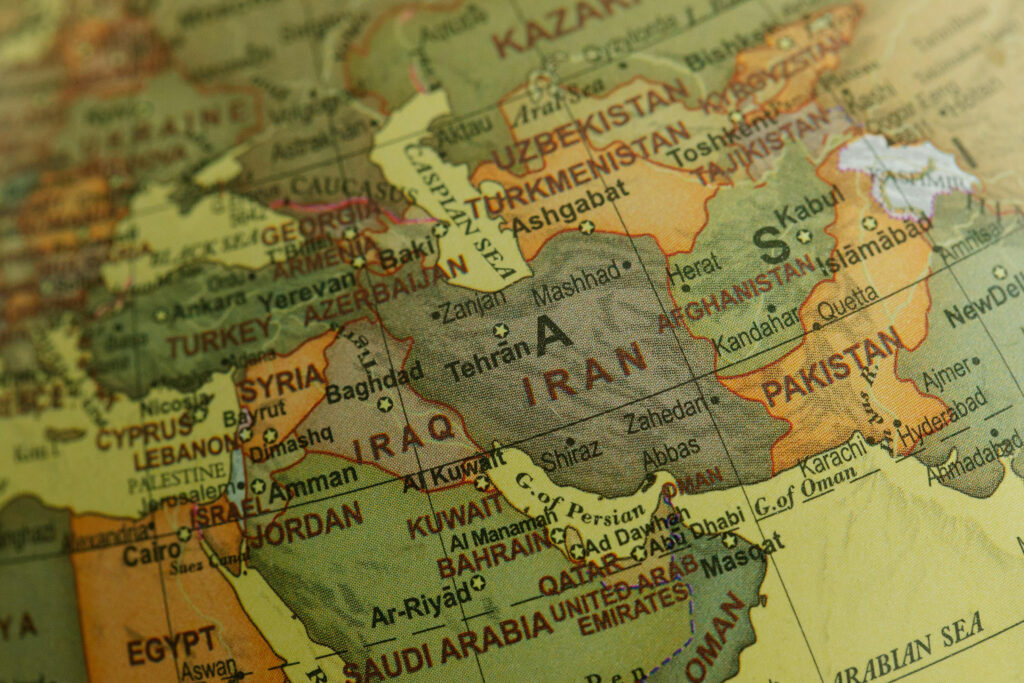


Responses